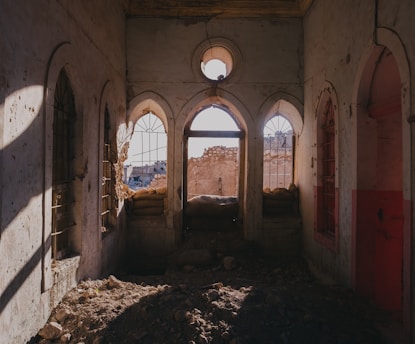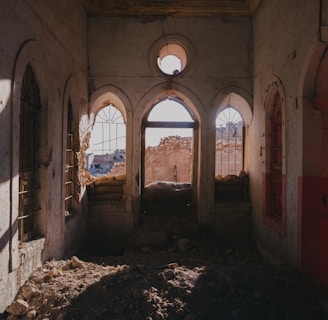
The False Spring of the Contemporary World; Iraq
Iraqi events and their impact on the region
TARIH


"There is nothing as stupid as supporting war and fighting for peace."
Desmond Tutu
The False Spring of the Contemporary World; Iraq
The Iraq War is the ongoing war that began on March 20, 2003, when the Multinational Coalition Forces led by the United States of America and the United Kingdom entered Iraq in a military operation... In fact, this is not the first time the Arab geography has been deceived. Just like during the First World War, the Arabs believed that peace would be brought to their country by the people of the Other World and were deceived as always. While they expected the freedoms that democracy would bring, democracy turned out to be a coffin for them. Being in the Middle East geography, even being a neighbor, means opening the door to trouble. Of course, this instability would have a negative impact on Turkey and terrorist organizations would increase their activities in the country day by day. Because the doors of Turkey's neighbors were broken, their windows were blown out and they had turned into abandoned houses where no one could enter or leave. Today, the "main issue" is the Iraq War and the false spring...
Background
The background to the Iraq War was US allegations that Iraq possessed weapons of mass destruction and was using them to support international terrorism. The US appealed to the United Nations (UN) to prove these allegations. However, the UN Security Council did not adopt a resolution calling for military action against Iraq, stating that there was insufficient evidence that Iraq possessed weapons of mass destruction.
After failing to obtain the necessary authorization from the UN Security Council, the United States launched military action to invade Iraq on March 20, 2003.
Movements
The Iraq War began with air strikes by the US and coalition forces. These strikes neutralized Iraq's air defense systems and targeted Iraqi army command centers.
On March 20, the air strikes ended with a ground offensive on April 20. In the ground operation, the Iraqi army failed to put up significant resistance against the US and coalition forces.
On April 20, the first phase of the Iraq War ended with the fall of the capital Baghdad. However, the war continued until 2011 due to internal turmoil and security problems in Iraq. During this period, more terrorist organizations proliferated in the region than ever before. The states of the region were negatively affected by this situation. In addition, democracy and freedom movements spread to other states in the region. The unstable period spread to other countries along with Iraq. Subsequently, states such as Yemen, Syria, Lebanon and Libya were left with civil war.
Results
The consequences of the Iraq War have been severe. The war has killed thousands of Iraqis and displaced millions. The war also had a profound impact on Iraq's political and economic structure.
The Iraq War was an important turning point in the Middle East. It changed the balance of power in the region and raised demands for democracy and freedom in the Arab world.
Effects of the Iraq War on Iraq
The Iraq War has caused massive destruction in Iraq. It has killed thousands of Iraqis and displaced millions.
The war also deeply affected Iraq's political and economic structure. The country has been plagued by civil unrest and security problems.
The effects of the Iraq War on Iraq can be listed as follows:
Humanitarian crisis The war has caused a major humanitarian crisis in Iraq. Millions of Iraqis have been forced to flee their homes because of the war. These people are struggling to survive in camps.
Political instability: The Iraq war has increased political instability in Iraq. The country is plagued by civil unrest and security problems.
Economic problems: The Iraq war has also deeply affected Iraq's economic structure. The country's economy is facing serious problems due to the destruction and security problems caused by the war.
Effects of the Iraq War on the Middle East
The Iraq War marked an important turning point in the Middle East. The war changed the balance of power in the region and raised demands for democracy and freedom in the Arab world.
The effects of the Iraq War on the Middle East can be listed as follows:
Balance of power: The Iraq War changed the balance of power in the region. The US managed to increase its influence in the region with the Iraq War. However, the destruction and security problems caused by the war also limited the US influence in the region.
Demands for democracy: The Iraq War raised demands for democracy and freedom in the Arab world. The popular uprisings known as the Arab Spring emerged as a result of the Iraq War.
Terrorism: The Iraq War led to the strengthening of terrorist groups in the region. Terrorist groups such as ISIS gained strength in Iraq and threatened stability in the region.
As a result, the Iraq war changed the history and destiny of the region. Things have never gotten better since then. In the next article, we will continue with "Israel".
